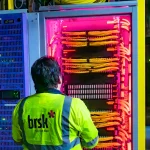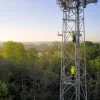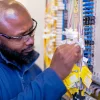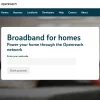Government Says UK Libraries are Safe from ISP Internet Piracy Law.. Maybe
The UK government’s communications minister, Ed Vaizey MP, has told the Open Rights Group (ORG) that “public intermediaries” (e.g. libraries and education networks) will “not be bound” by Ofcom’s Initial Obligations Code, which requires broadband ISPs to clamp down upon P2P internet copyright infringement (piracy).
The comments follow last month’s formation of a new coalition of eight leading educational organisations (here), including UK libraries and school groups, which warned that Ofcom’s code was causing confusion over how it chose to define “subscribers” and “communications providers”, which might have resulted in many related establishments being unfairly penalised.
Advertisement
Ed Vaizey, Communications Minister, explained:
“Public intermediaries offering internet access for library members and students provide fewer than 400,000 fixed lines [Ofcom’s threshold for qualifying ISPs is 400k+], and are therefore likely to be classed as non-qualifying ISPs rather than subscribers, and to the extent that they are ISPs they will not be bound by the Code.”
According to Vaizey, even if a Rights Holder asks an ISP to send a Copyright Infringement Report (CIR) to such an organisation then they [the intermediary acting as an ISP] “will not be required to act on it“. Vaizey added that further details about how public intermediaries can register their status with an upstream ISP will be worked out as part of the “implementation process“.
Sadly Vaizey then makes the Ofcom mistake of suddenly saying, “there may be instances when a public intermediary should be classed as a subscriber“, without actually giving any examples of when that would occur (i.e. potentially making them vulnerable to disconnection, service restrictions or possibly even legal action by Rights Holders). But the MP said he was “optimistic” that a “practical solution” could be found to the confusion.
In response the Open Rights Groups has issued an open letter calling for Ofcom to re-work the related text in order to clarify such areas before the new rules are introduced.
Jim Killock, Executive Director of the ORG, said:
“We certainly recognise and welcome the work that Ofcom have put into the revised Code. However, we believe it still does not provide the requisite level of certainty for wifi providers, from libraries through to cafes and hotels, as to whether they will be considered ‘subscribers’ and as a result be the subject of CIRs. As a result the Code will likely act as a disincentive to the provision of public wifi and undermine a key plank of the UK’s Internet infrastructure.
DCMS and Ofcom say that it is ‘likely’ that public intermediaries will be classified as non-qualifying ISPs rather than subscribers. We are far from certain this will be the case. Unfortunately, the appeals body does not have the power to issue such binding guidance.
We contrast this to the stance that Ofcom have taken with large wifi providers, who are explicitly excluded from the scope of the Code because “inclusion is likely to lead to them incurring substantial costs to achieve a minimal reduction in overall levels of online copyright infringements.” We note no such analysis been undertaken for other providers.”
The brief consultation on Ofcom’s revised code closed at the end of July 2012 and, once complete, will be submitted to the European Commission (EC) for final approval. The regulator currently envisages that the first notification letters will not be sent until early 2014. Hopefully by then issues like this one will have been resolved.
Advertisement
Ed Vaizey’s Letter to the ORG
http://www.openrightsgroup.org/assets/files/files/pdfs/3975_001.pdfORG’s Reply Letter to Ed Vaizey
http://www.openrightsgroup.org/blog/2012/initial-obligations-code-needs-rewriting.-again
Mark is a professional technology writer, IT consultant and computer engineer from Dorset (England), he also founded ISPreview in 1999 and enjoys analysing the latest telecoms and broadband developments. Find me on X (Twitter), Mastodon, Facebook, BlueSky, Threads.net and Linkedin.
« BT Forces UK ISPs to Charge More for SFI2 Broadband Engineer Visits
















































Comments are closed